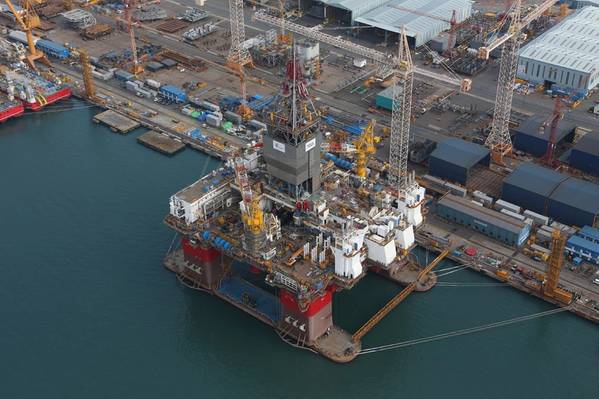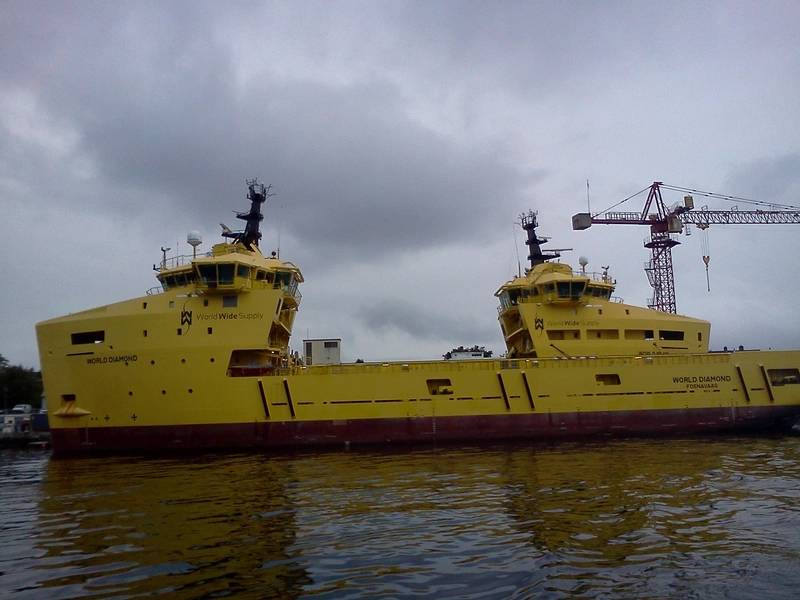
A recent industry survey suggests Norway’s offshore fleet, the world’s second-largest, may have passed the worst of the painful, post-2014 slowdown, although ship owners contemplating market moves also say financial markets may be looking away.
Although earnings in 2019 are beginning to grow again, newbuilds for many, especially smaller outfits, might not be what banks are interested in, with many vessels (including newbuilds) still stacked shoreside. The Norwegian Shipping Association's recent report has owners saying their access to capital has “gradually weakened between 2014 and 2017” with only “slight improvement” in recent months.
“In 2019, we once again see a worsening situation, with shipowners now considering access to capital as tighter compared to last year’s Maritime Outlook Report,” the shipping and rigs advocacy says, adding that 64 percent of drilling contractors, seven percent more than last year, say access to capital is “tight”.
“This is a significant deterioration for these groups (offshore vessel and rig owners) since 2018, when about half thought the same,” the report says. “None of the offshore drilling companies believe that access to capital is good.”
The shipping lobby reports offshore shipping and offshore drilling companies are “clearly the most pessimistic towards the development of capital access in 2019”. They cite as cause an expectation of another round of restructuring and refinancing among owners.
Beyond credit worries, the 85,000-strong industry reports fewer vessels in lay-up. Among anchor-handlers and platform-supply vessels, at least, the spot market is strong, and there’s optimism for growth.
 Grey skies lifting: optimism replacing pessimism for offshore fleets of Norway (Photo: William Stoichevski)
Grey skies lifting: optimism replacing pessimism for offshore fleets of Norway (Photo: William Stoichevski)
Seven percent growth
Fleet owners saw seven percent growth in 2018. Now, the Shipping Association reports that optimism is up on estimates that petroleum-related income will increase to just under 125 billion kroner ($14.57 billion), a rise of almost seven percent over 2018.
In fact, The Association’s charts suggest offshore shipping revenues will reach levels not seen since the heyday of 2008-2011. Travel the country, however, and the laid-up vessels are hard to miss.
Rates are still half what they were during the “reckless” times. Contracts are still painfully short, and the Shipping lobby sees “further restructuring and refinancing” for 2019.
Peculiar to Norway, nearly all offshore shipping and drilling companies reportedly say they see national earnings champion, Equinor, as a “problematic” hindrance to competition. Equinor controls the lion’s share of offshore licenses (upwards of 80 percent).
“There is an imbalance in the offshore markets, with the oil companies showing strong profits, while suppliers are under pressure to cut costs, and facing rates that hardly cover operating costs,” shipping association director, Harald Solberg, was quoted as saying.
Few see weakening
For now, the offshore market is “weak but improving”, the advocacy concludes. The reason for cautious optimism: the number of offshore ship owners predicting better profitability in 2019 is up from 35 percent in 2018 to 47 percent in 2019; those seeing weaker profits are seven percent fewer and are now at one in four.
Lessening the blow, to some extent, are the rewards won for forays into offshore wind. Six out of 10 Norwegian-owned shipping companies now ply the offshore wind market and many others report they are considering the benefits trying.
For now, overcapacity means continued low rates, with laid-up ships losing value while incurring expenses. In February 2019, shipping companies had 112 vessels and 20 rigs in layup, that’s down year-on-year by 26 fewer vessels and five fewer rigs.
Forecasts for the rest of the year suggest the count of laid-up vessels and rigs by year’s end will have fallen further on more offshore work, ship recycling and vessels sales.